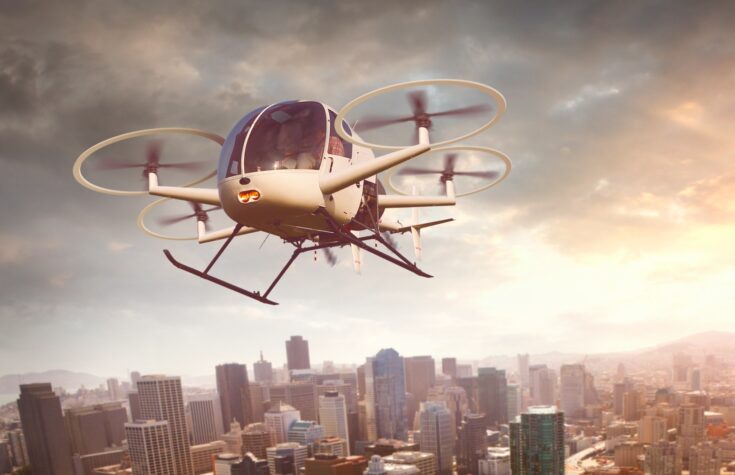A new report from UK Research and Innovation (UKRI) and PwC shows significant potential benefits to the UK economy by using drones and electric aircraft.
The benefits include:
- remote maintenance
- connecting people with mail, medicine and each other.
Socio-economic study
Analysis in the Future Flight Challenge socio-economic study found that switching to these new technologies could:
- be up to 48% cheaper
- deliver faster journey times
- improve worker safety when compared to current methods.
To support the widespread and safe use of new aviation technologies, UKRI’s Future Flight Challenge wanted to understand the potential costs and benefits of different applications.
Six use cases
The Future Flight Challenge asked PwC to undertake a socio-economic study that could be used to assess six different use cases which represent potentially valuable applications of new aviation technologies:
- using a drone to inspect a 220km powerline in Scotland, which at one point runs more than 2,500ft above sea level, rather than sending a two-person team
- delivering mail from Inverness to Kirkwall in Scotland by cargo drone instead of using a normal cargo plane
- using a drone to deliver medicine from a pharmacy direct to patient homes instead of using a car
- using a battery powered sub-regional air taxi instead of the train to travel between York and Preston
- using a battery powered air mobility vehicle to travel 25km in a rural area instead of using a car
- using a battery powered air mobility vehicle instead of a ridesharing service to travel 10km in a major city.
The study found that using drones to inspect powerlines, deliver mail and medicines could be up to 35% cheaper than the current way. Whilst people travelling from York to Preston could significantly benefit from having access to an electric aircraft.
With cheaper fares and travel times potentially halved when compared to completing the journey by train.
Shaping our funding decisions
Future Flight Challenge Director, Gary Cutts said:
The analysis carried out by PwC has been vital in providing us with the evidence to help shape our funding decisions across a diverse range of projects. There is great potential to be had from these new aviation technologies and I hope that businesses in the sector will be encouraged by these results.
PwC UK Drones Technical Lead, Craig Roberts said:
The Future Flight Challenge is playing a pivotal role in shaping the future of aviation in the UK. It has been a pleasure to work with their team to deepen our collective understanding of the potential for new aviation technologies.
Our industry-leading Total Impact Measurement and Management approach and deep market knowledge enabled us to build a holistic framework which delivered powerful insights into the potential costs and benefits of some exciting use cases.
Read the full report and a summary: Future Flight Challenge socio-economic study.
Further information
The Future Flight Challenge is funded by £125 million from the Industrial Strategy Challenge Fund. It aims to revolutionise the way people, goods and services fly.
It will support the development of a novel integrated aviation system around freight-carrying drones, urban air vehicles to hybrid-electric regional aircraft.
The challenge will also develop the supporting infrastructure, regulation and control systems required to use these new aircraft practically and safely.
The drone specialists at PwC UK can help companies unlock significant time, cost and safety benefits through a drone digital transformation program.
Top image: Futuristic drone (credit: narvikk/GettyImages)

